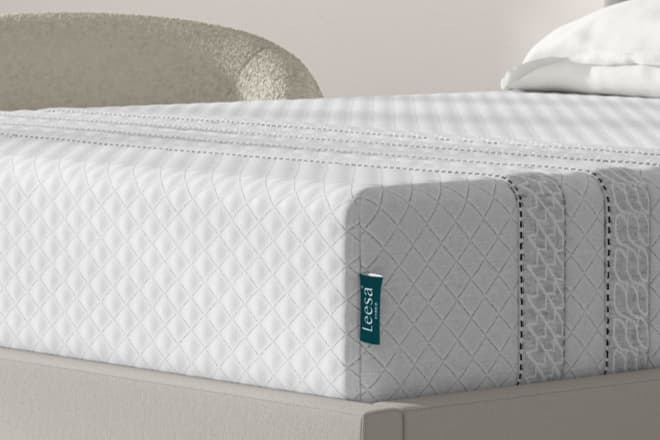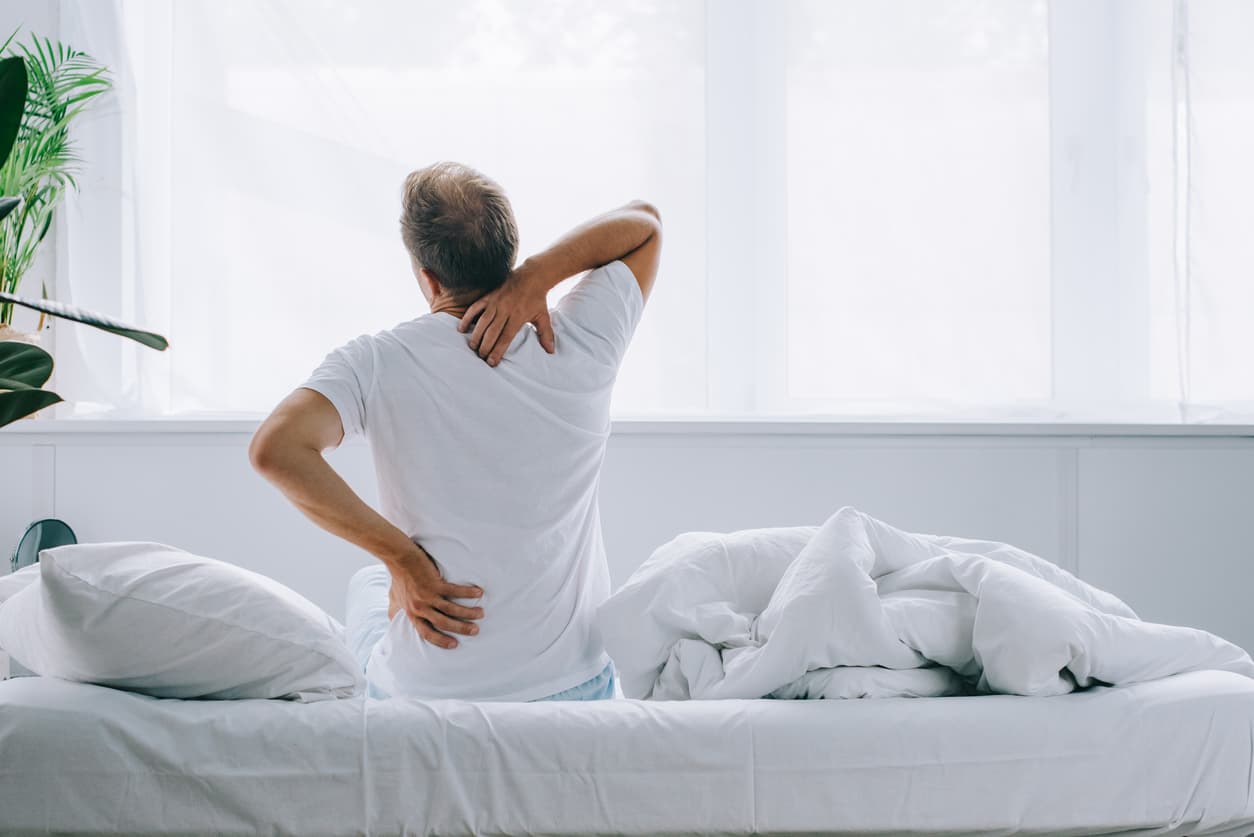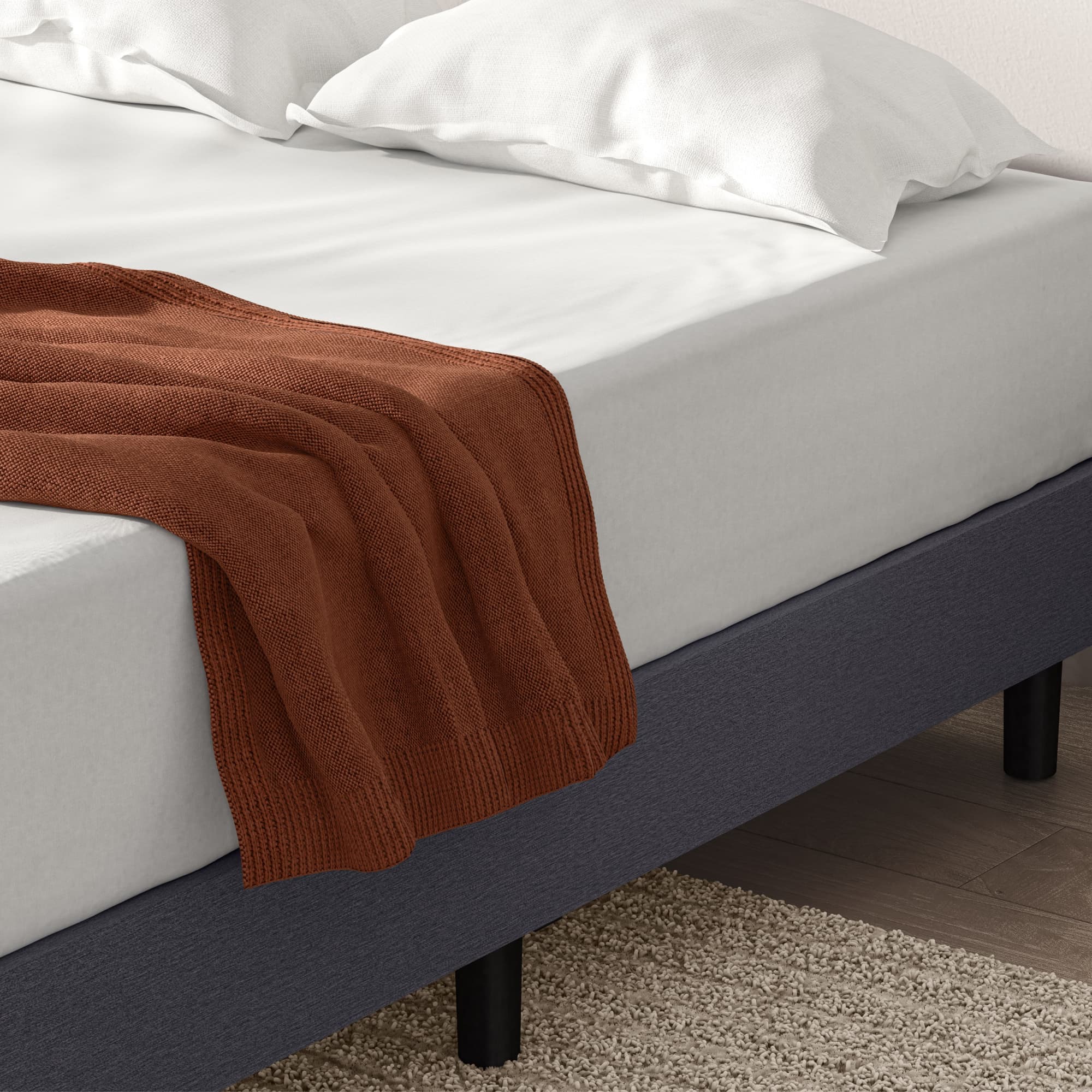It’s common to think of sleep as your body’s “shutdown” mode. In fact, just a few decades ago, that’s what doctors thought sleep was too.
However, due to a wealth of research by doctors and medical professionals over the past half-century, we now know that it’s actually quite the opposite. While you may feel like you’re taking a break and shutting down during sleep, your internal systems are actually getting quite the workout.
“Sleep affects almost every type of tissue and system in the body–from the brain, heart, and lungs to metabolism, immune function, mood, and disease resistance,” say the experts at the National Institutes of Health (NIK). In fact, studies show that a chronic lack of sleep can increase the risk of health issues including high blood pressure, depression and obesity. Sleep is largely dependent on your body’s natural circadian rhythm, a.k.a. your internal clock.
What Your Circadian Rhythm?
Your circadian rhythm is your body’s internal clock, which guides your 24-hour sleep-wake cycles, making you sleepy at night and waking you up in the morning. Naturally, your internal clock will pair up with environmental cues, namely natural light. This is another reason why we are awake when the sun is out and asleep when it’s dark.

Unless you work the night shift, your internal clock is probably in sync with nature and will continue to sleep and wake on this cycle even in the absence of those cues. For example—if you were locked in a room with no windows and no light, you may have trouble keeping track of time but your body would continue cueing you into when to sleep and wake for a while before the habit was broken.
Your body’s tendency to stay on the same sleep-wake cycle is a reason that creating and sticking to a sleep cycle can be beneficial to better rest.
If you’re a night shift worker, you may have trouble adjusting their circadian rhythms and sleep-wake homeostasis because you’re on an opposite schedule of the sun. If you’re trying to go to bed when the sun is out and starting your day once it’s set, it can be disorienting. Don’t worry, even if you’re schedule is a little different, you can re-train your body and adjust your sleep schedule to teach your internal clock your schedule.
Sleep-Wake Homeostasis
Another important internal system is known as your sleep-wake homeostasis. This is your body’s way of measuring your need for sleep. It pretty much keeps track of how long you’ve been awake and causes you to become sleepier each hour you get nearer to bedtime.
This is Your Brain on Sleep
Your brain works hard when you sleep. Sleep is like a major reboot for your brain—it works to clean out all the detritus and debris, repair neurons and nerve endings, form memories, remember things you learned and prepare for a new day. Your brain goes through different stages as you move through the stages of sleep.
Your brain and body go through several stages as you sleep, known as NREM (non-REM) sleep and REM (rapid eye movement) sleep. Here is a breakdown of the various stages of sleep and what is happening to your body and brain while you are catching some zzz’s.
Stage 1
Often called the “introduction to sleep” or “early sleep,” stage one of your sleep cycles are a very brief period, usually lasting somewhere between five and seven minutes. Basically, this happens as you transition from closing your eyes to falling asleep. During this period, you can be easily awoken and may still be aware of lights, noises and other environmental stimuli. During stage one, your eye movements slows and your brain begins to create the alpha and theta waves that help prepare your internal systems for sleep.
Stage 2
The next phase of sleep is called “light sleep.” During this stage, your brain waves, sometimes called sleep spindles, start to increase. This lets your body know it’s time to enter sleep mode. As you move from stage 2 to stage 3, these brain waves start to slow down.
Pro Tip: The end of stage two is the point in which sleep researchers recommend waking up from a short nap. At this point most people will have been asleep for 10 to 20 minutes. Once you enter stage three (and get into stage 4), deep sleep begins and waking in the middle of that can cause you to feel groggy and confused, not rested and energized.
Stages 3 & 4
During your sleep stages three and four, your body enters deep sleep. This usually occurs when people have been asleep for at least 60 minutes. Eye and muscle movements mostly stop and you are not as easily awakened. You also become unaware of environmental stimuli in these stages.
Your brain begins to produce delta waves and as these waves increase, your body enters deep sleep. Deep sleep is the most restorative stage of sleep. This is when your body performs crucial functions like muscle and tissue repair and boosting your body’s immune response (this is especially important when you are sick!). In children and teens, this is also when the body experiences key growth and development, which is why it’s important that kids get more sleep than adults. During these stages, your body also begins to build up energy for the next day.
Pro Tip: If you’ve surpassed the 20-minute napping mark, this is a good time to set your alarm. After about 60 minutes, your body starts to enter the next stage of sleep. Waking up in the middle of it can often make you feel more tired and groggy than if you hadn’t napped at all.
REM Sleep (Stage 5)
REM (rapid eye movement) sleep is the deepest stage of sleep and is when you start to dream. Most people enter this stage after about 90 minutes of sleep. A single REM sleep cycle lasts about one hour for the average human and each person has about five or six REM cycles per night, depending on how long they sleep. A lot happens during REM sleep.
This sleep stage is very active, both internally and externally. While you dream, your body may jerk, twitch and move. Your eyes also move rapidly under your lids (hence the name—REM sleep). Internally, your heart rate and blood pressure can increase and reach similar levels as when you’re awake and your breathing often becomes quicker and more shallow.
During REM Sleep, your brain gets restorative care—this is when memories are formed and things you learned are absorbed. Think of it like backing up your hard drive or phone. During this sleep cycle, your brain is processing everything that happened to you while you were awake and preparing to store it in your long-term memory files.
How our Sleep Cycles Change with Age
Our age and stages of growth have a lot to do with how much sleep we need. This is why newborns need the most sleep of all—since they’re growing and going through key developmental stages. Fully-grown adults need the least amount of sleep, a recommended 7 to 9 hours, mostly to recover from the day, process immune responses and recharge for the next day.
Your sleep cycles are smart! Besides age, your sleep cycles may vary in different conditions. For example, if you’re fighting off a cold, you may spend longer in pre-REM deep sleep. That’s because this is the most restorative part of your sleep cycles where your immune system is most active.
How Much Should we be Sleeping?
The National Sleep Foundation recommends different amount of sleep based on your age and developmental stage.
- Newborns (0-3 mos.): 14-17 hours per night (up to 19 hours may be appropriate)
- Infants (4-11 mos.): 12-15 hours per night (up to 18 hours may be appropriate based on how many hours in a row the child sleeps at night, supplemented with naps)
- Toddlers (1-2 years): 11-12 hours per night (up to 16 hours may be appropriate based on how many hours in a row the child sleeps at night, supplemented with naps)
- Preschoolers (3-5 years): 10-13 hours per night (up to 14 hours may be appropriate depending on whether the child still takes a nap during the day)
- School Age Children (6-13 years): 9-11 hours per night (up to 12 hours)
- Teens (14-17 years): 8-10 hours per night (up to 11 hours)
- Young Adults (18-25 years): 7-9 hours per night (no less than 6).
- Adults (26-64 years): 7-9 hours per night (no less than 6, no more than 10)
- Older Adults (65+ years): 7-8 hours per night (no less than 6, no more than 8 hours)
For teens and young adults especially, getting enough rest is important. It can help deal with the stresses and responsibilities this stage of life can bring, including school, a job, social pressures and hormonal and bodily shifts occurring at this time. As an adult, doctors tend to recommend getting slightly less sleep, since people generally become less active as they age.
What Can we Learn About our Sleep?
Whew, that was a lot of info. What can you take away from all of this sleep talk? Knowing your specific sleep needs based on your age can help you plan a healthy sleep schedule that can increase your both your physical and mental health, as well as your energy and performance. Some of the world’s most successful people say they make getting a healthy amount of regular sleep a priority in their daily lives.
Determine the amount of sleep doctors recommend that you get based on your age (for most adults, that’s seven to nine hours per night). As much as you can, plan your schedule so that you get enough sleep and wake up well-rested.
Visit our Resource Guide for tips on everything from creating a sleep sanctuary in your bedroom to how to fall asleep faster and more.
Of course, for your best rest, we suggest starting with the right mattress and pillow—upgrade your sleep with Leesa.



